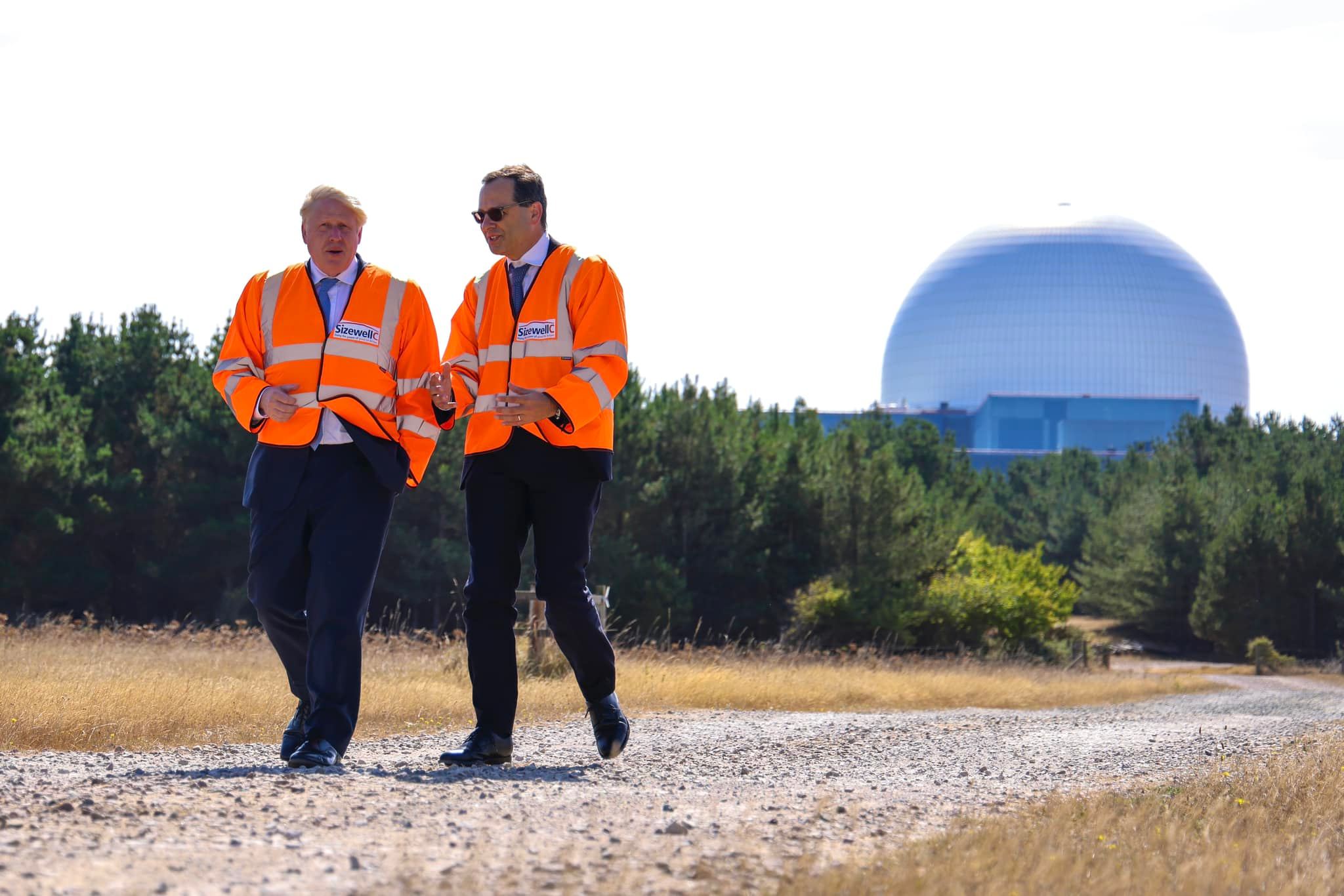
Before vacating No. 10 next Tuesday, Boris Johnson has made what is likely to be his last major policy move. During a Thursday speech, the British PM said he would earmark £700m of taxpayers’ money, which would go towards investments in nuclear energy.
Johnson, during a press briefing at the fishing town of Sizewell, in the eastern county of Suffolk, promoted the construction of a new nuclear plant there, Sizewell C.
In his typical sloganeering fashion, Johnson called on the nation to “go nuclear and go large, go with Sizewell C.” The British leader appeared confident that the deal will get “over the line” in the coming weeks, saying it would “be absolute madness not to.” The new reactor would have the added benefit of providing tens of thousands with jobs, Johnson went on to say.
Johnson has been a consistent defender of going the nuclear route, and has on multiple occasions blamed both Labour and Liberal Democrat governments for not having erected any when they had the power to do so. During his speech, in what many considered a critique of fellow Tory and expected successor Liz Truss, he cast doubt on fracking. Previously, Truss promised to lift the moratorium on fracking in her bid to become the next prime minister.
The government first greenlighted the project last July, prompting a legal challenge from campaigners. They deem it to be unlawful and are concerned about the maintenance of a water supply as well as the coastline’s resilience.
If completed, the new plant would stand next to Sizewell B, which has been generating electricity for over 25 years. With its 3.2 gigawatt capacity, estimations say, it will be capable of providing 6 million homes with electricity for up to 60 years. Yet, that is still far off in the future, as it will take between 15-17 years to build.
The government has yet to make a final decision on the amount of taxpayer funds to be used to pay for it; current estimates lie around £6bn, for the next year alone. Before Johnson pledged his £700m, £100m had already been set aside for the project. Yet, government investment alone is not nearly enough; Sizewell C, which could carry a hefty price tag of up to £30bn, is now hoped to attract private investors to make up the bulk of the financial resources needed.
Plans for the plant were originally developed by the French energy firm EDF, which holds an 80% stake in the project, and the Chinese state-backed nuclear power company CGN, which has a 20% holding. In light of the recent worsening of Sino-British relations, further Chinese involvement in the UK’s nuclear sites is viewed with wariness. CGN also holds a stake in Hinkley Point C, the Somerset plant currently under construction, and upon which Sizewell’s plans are based. EDF had previously said the Sizewell plant could cost 20% less than its Hinkley Point C plant, which is currently budgeted at £25-26bn.
As a surge in energy prices following the war in Ukraine has made life for millions of British households (the worst hit in all of Western Europe, per IMF statistics) increasingly precarious, achieving energy independence has become Westminster’s top priority.
Last year, natural gas (mainly from Russia) provided around 45% of the country’s electricity production. To reduce such gross dependency, the government expects to green-light eight new nuclear reactors over the next eight years. Yet, as these projects will not see actual completion for many years, short-term solutions are required to address the UK’s cost-of-living crisis.
With families in real pain, with small to medium-sized businesses (among them, the nation’s pride, the pub) facing mass closures, with the pound sterling experiencing its biggest fall against the dollar since 2016, and with the UK likely to slide into recession before the year’s close, its next PM has more than one mountain to climb.
